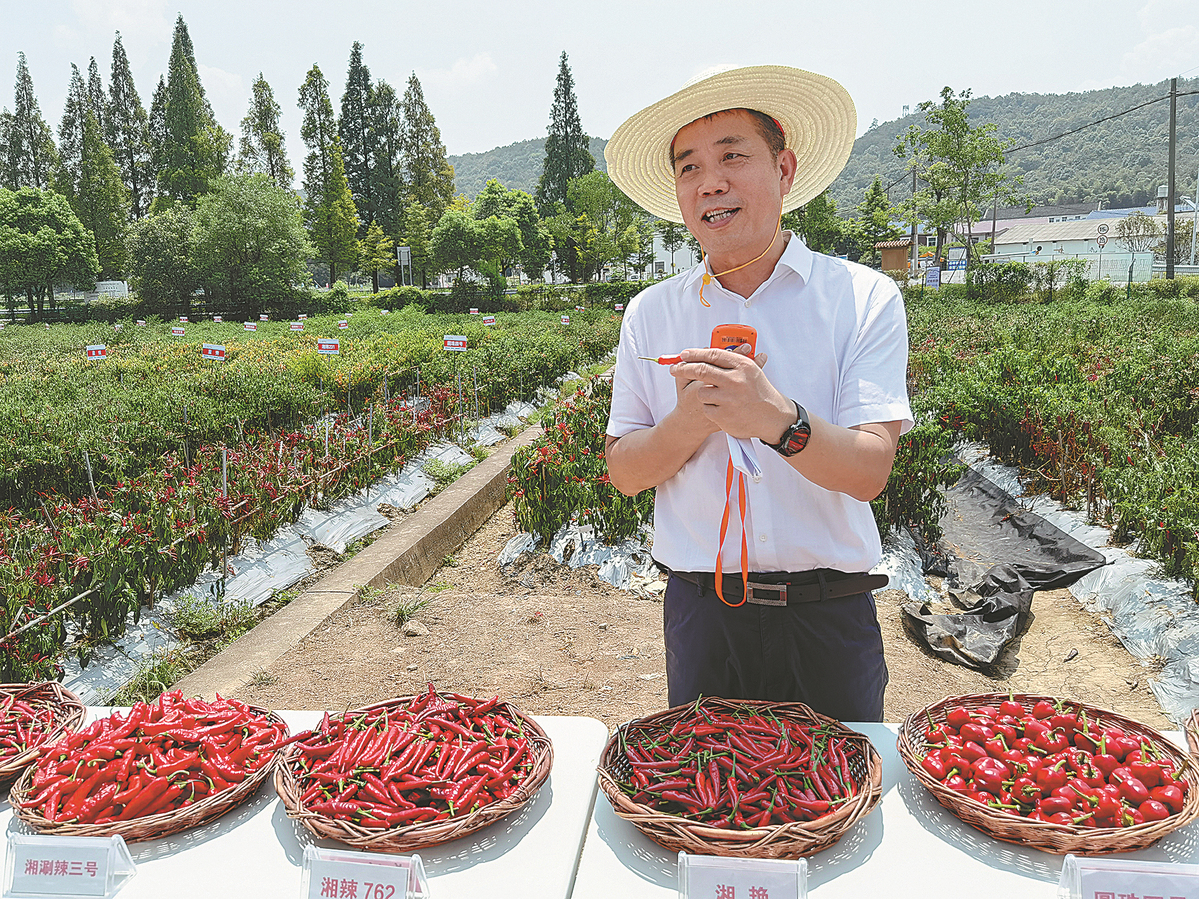

These days, a piece of tie-dyed cloth sells for about 30 yuan in Hequn.
"Though the handicrafts are more profitable now, it is not only money that we are pursuing, but also the inheritance of Bai culture," she said.
The village of Zhoucheng in Dali, Zhang's hometown, and Hequn are sister villages.
The first group of Bai people moved from Zhoucheng to Hequn in the 1980s and brought their handicraft techniques with them. The villages formed an official partnership in 2012.
Yang Shuchun, Zhang's son, is also involved in the business of tie-dyeing, which he learned as a child from his mother. He wore a tie-dyed blue and white shirt while participating in last month's workshop.
Yang said he remembers his parents would start work early in the morning, drawing the patterns they liked, brushing on colors, pinching some areas of the cloth and tying them tightly with thread.
The dye contains banlangen, a traditional Chinese medicine.